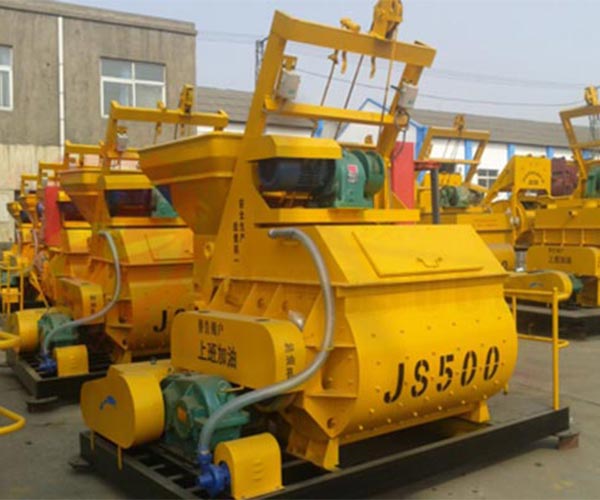There are countless different uses for concrete in the construction industry. From pouring driveways and patios to building foundations for some of the world’s tallest buildings, this strong, durable material is incredibly versatile, affordable, and easy to use.
One of the challenges of working with concrete, however, is properly mixing it. Without the right ratio of cement, aggregate, and water, the concrete won’t perform as expected. This is where stationary concrete mixer can help. These specialized machines are designed specifically for mixing concrete. In many cases, they store, measure, and mix all of the components required for a batch of concrete. This can help ensure consistency from one batch to the next.
Stationary mixers also tend to be relatively easy to clean. Keeping the machine clean is especially important when working with concrete. Any material that is left behind can pose a real problem if it is allowed to set in place. Because of that, these machines need to be cleaned out immediately after use. Stationary mixers simplify this process compared to other types of concrete mixing machines.

stationary concrete mixer
It is also important to note that even though these machines are referred to as “stationary” machines, they can usually be moved from one area to another. Although they are not on wheels like many other types of concrete mixers, they can still be broken down, transported, and set up again relatively quickly and easily. This means that you can use them on the job site just like you would with any other concrete mixer. This gives you the convenience of portability with all of the benefits that a stationary mixer provides.
Overages and shortages are a real problem for people in the concrete industry. Without precise measurements, you could wind up mixing more or less concrete than you actually need. Mixing too much concrete is wasteful and can wind up costing you money, cutting into your profits for the job. On the other hand, mixing too little concrete can slow down production times, putting you behind schedule. Fixed concrete mixer allows you to precisely control the measurements, helping to ensure that you mix exactly the right amount of concrete every single time. This can save you time and money.
There are several different styles of stationary concrete mixers on the market including twin shaft mixers, drum mixers, and vertical axis mixers. Of these three, drum mixers are by far the most popular and commonly used. More detaisl on http://aimixconcretemixer.com/stationary-concrete-mixer-for-sale/.
Now that you know some of the facts about stationary concrete mixers, you should have a better idea of how they work and what types of applications they can be used for. Based on this information, you should then be able to decide whether or not they are the right choice for your business. Generally, if you work with concrete on a regular basis or if you require precise mixes, one of these machines can be a great choice. They provide a superior level of control and precision over other common types of concrete mixing machines. Interested in concrete mixer? Want more details? Aimix sums up a lot on http://aimixconcretemixer.com/.